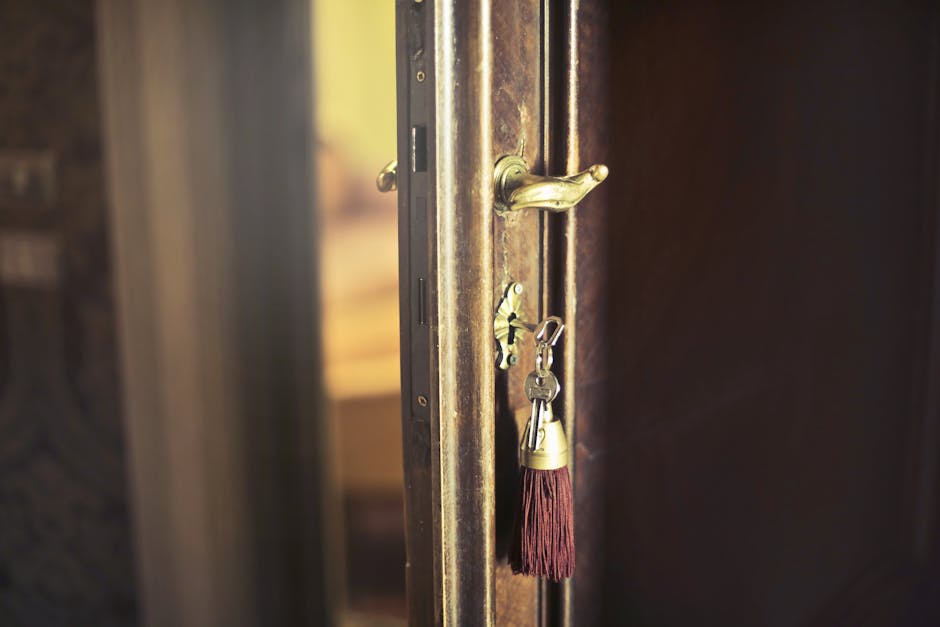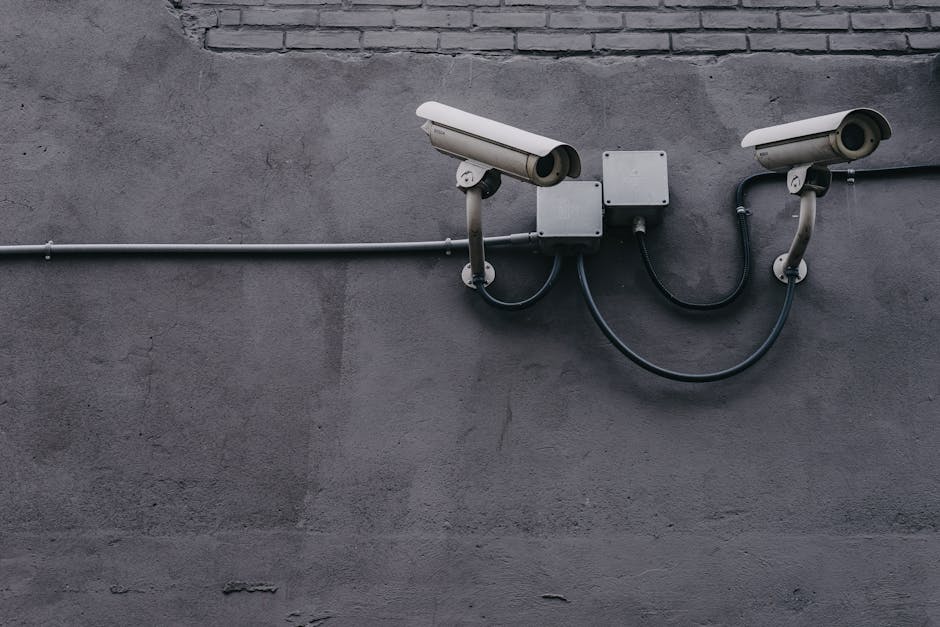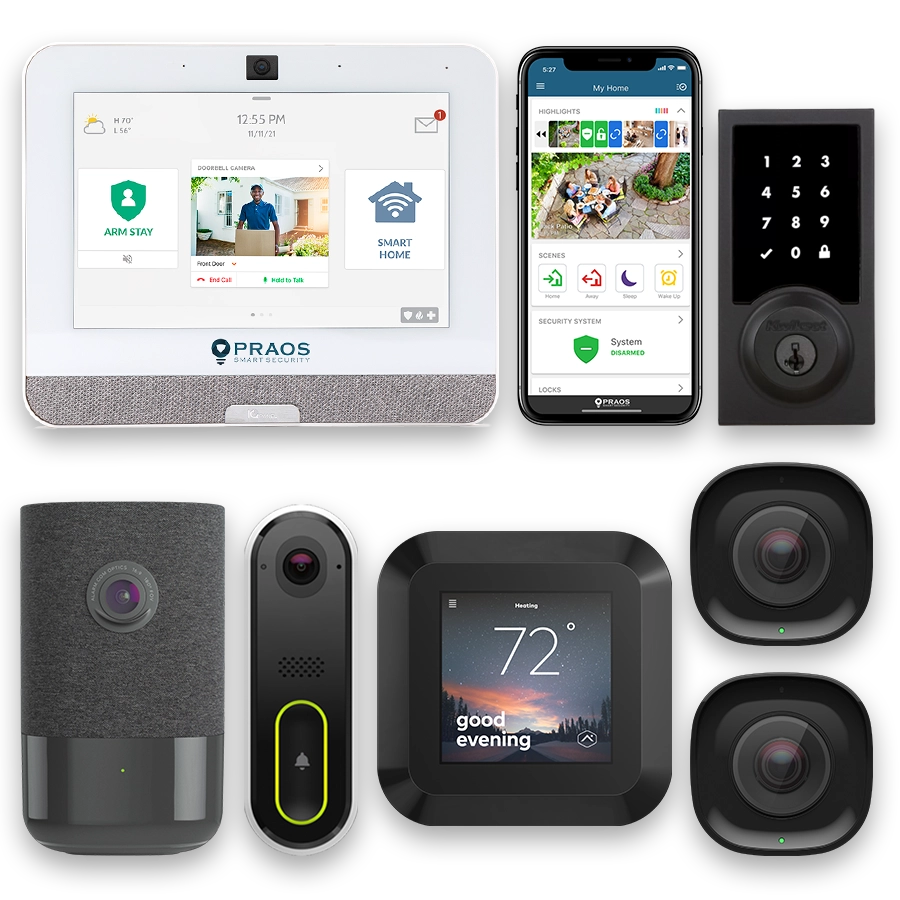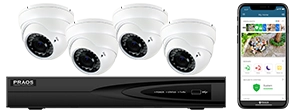- Understanding the Importance of Home Security in Richmond, Virginia
- Key Features to Look for in Security Camera Systems
- Comparative Analysis of Top Home Security Camera Brands
- Integrating Security Camera Systems with Smart Home Technology
- Regulatory and Privacy Considerations in Richmond
- Cost-Benefit Analysis of Investing in Home Security Systems
- Case Studies of Effective Home Security Installations in Richmond
Understanding the Importance of Home Security in Richmond, Virginia
In recent years, home security has emerged as a pressing concern for residents of Richmond, Virginia. This growing awareness stems from a combination of factors including fluctuating crime rates and advances in security technology that have made it easier and more cost-effective to safeguard homes.
Crime Statistics in Richmond
Understanding city-specific crime data is essential for appreciating the importance of home security. According to the Federal Bureau of Investigation (FBI) Uniform Crime Reporting (UCR) Program, Richmond experienced a property crime rate of 2,676.2 incidents per 100,000 individuals in 2020. Property crimes encompass burglary, larceny-theft, and motor vehicle theft. These statistics underscore the need for robust home security measures.
Benefits of Home Security Camera Systems
Advancements in technology have drastically improved the capabilities of home security camera systems. Here are some key benefits:
- Deterrence: Visible cameras can deter potential intruders or vandals.
- Evidence Collection: High-definition (HD) cameras can capture clear video and images that are critical for law enforcement investigations and insurance claims.
- Remote Monitoring: Many modern systems offer mobile apps that allow homeowners to monitor their property in real-time from anywhere.
- Integration with Other Systems: Security cameras can often be integrated with other smart home devices such as motion detectors and alarm systems for a cohesive security strategy.
Community and Social Impact
The introduction of home security camera systems has a broader social impact. Enhanced security measures can contribute to a reduced crime rate, fostering a safer community. Neighborhoods equipped with multiple home security systems often experience lower rates of residential crime.
It is also noteworthy that public awareness campaigns by local authorities and community-based organizations can amplify the effectiveness of individual security measures. By working together, residents and officials can create a safer environment for all.
Technological Advancements
Recent advancements in technology have introduced features such as artificial intelligence (AI), machine learning, and Internet of Things (IoT) integration to home security systems. These innovations offer more accurate threat detection, customization options, and user-friendly interfaces.
- AI and Machine Learning: These technologies enable cameras to differentiate between a potential threat and a benign activity, reducing false alarms.
- IoT Integration: Devices can communicate with each other, creating a more comprehensive security network.
- High-Resolution Imaging: Modern cameras offer 4K resolution, providing crystal-clear images and videos.
- Cloud Storage: Many systems now offer cloud storage options, ensuring that footage is safely backed up and retrievable if needed.
As Richmond evolves, so do the strategies and technologies needed to maintain and enhance home security. Understanding the importance of these systems are the first step towards a safer living environment.
Key Features to Look for in Security Camera Systems
When selecting the ideal home security camera system for enhanced protection in Richmond, Virginia, understanding the key features that differentiate high-quality systems from mediocre ones is crucial. These features ensure that the chosen system is effective, reliable, and tailored to meet specific security needs.
High-Resolution Video Quality
High-resolution video quality is paramount for capturing clear and detailed images. Cameras with a resolution of at least 1080p (Full HD) are recommended. Higher resolutions, such as 2K or 4K, provide even more clarity, which can be essential for identifying intruders or other critical details.
Night Vision Capabilities
Night vision capabilities are essential for 24/7 surveillance. Look for cameras equipped with infrared (IR) LEDs, which allow the system to capture footage in low-light or complete darkness. The effectiveness of night vision is measured by the distance (in feet) that the camera can cover, commonly ranging from 30 to 100 feet.
Field of View
The field of view (FOV) determines how much area the camera can cover. A wider FOV (measured in degrees) reduces the number of cameras needed to monitor a large space. Cameras typically offer between 90 and 180 degrees of visibility.
Motion Detection and Alerts
Motion detection is a critical feature that helps in conserving storage space and focusing attention on significant events. Advanced systems can distinguish between human movement and irrelevant motion (e.g., pets, falling leaves) and send real-time alerts via push notifications or emails.
Weather Resistance
For outdoor cameras, weather resistance is a vital feature. The Ingress Protection (IP) rating indicates the camera’s ability to withstand various elements, such as rain, dust, and extreme temperatures. A rating of IP65 or higher is generally suitable for outdoor use.
Two-Way Audio
Two-way audio enables communication with individuals on the premises. This feature is useful not only for deterring intruders but also for everyday interactions, such as remotely talking to visitors or delivery personnel.
Storage Options
Storage options for recorded footage typically include local storage (SD cards, hard drives) and cloud storage. Each has its pros and cons. Local storage provides greater control and no recurring costs, while cloud storage offers remote access, ease of use, and better protection against tampering or theft.
Integration with Other Systems
The ability to integrate with other smart home devices enhances the security system’s functionality. Compatibility with systems like Amazon Alexa, Google Home, and smart locks allows for a more cohesive and automated security network.
User Interface and Mobile Accessibility
An intuitive user interface and mobile accessibility ensure that the system is easy to use and manage. Mobile apps should provide real-time viewing, playback options, and system customization capabilities from anywhere.
Power Source and Connectivity
Consider the power source and connectivity options. Battery-powered cameras offer flexible installation but require regular recharging or battery replacement. Wired cameras provide consistent power but may need professional installation. Additionally, ensure that the system supports reliable and stable connectivity, such as Wi-Fi, Ethernet, or even cellular backup options.
By carefully evaluating these key features, residents of Richmond, Virginia can select a home security camera system that provides comprehensive and effective protection tailored to their specific needs.
Comparative Analysis of Top Home Security Camera Brands
Richmond, Virginia, features a diverse range of home security camera options from several top-tier brands. To aid homeowners in making an informed decision, it’s crucial to understand the comparative benefits, specifications, and reputations of these industry leaders.
Arlo
Arlo is known for its high-quality, wire-free security cameras that offer flexibility and ease of installation. Their cameras typically come with features such as 2K or 4K video resolution, advanced motion detection, and compatibility with various smart home platforms. Arlo’s subscription service offers enhanced features like 30-day cloud storage and customizable activity zones.
Ring
Ring stands out due to its comprehensive home security ecosystem, which includes video doorbells, outdoor floodlight cameras, and indoor cameras. Most Ring cameras offer HD video, two-way audio, and real-time notifications. Subscribing to Ring Protect provides additional benefits such as extended video history and advanced motion detection settings.
Google Nest
Google Nest cameras are celebrated for their integration with Google’s smart home devices. Key features include high-definition video, intelligent alerts using advanced algorithms, and seamless integration with Google Assistant. Nest Aware, their subscription service, extends video history and includes features like intelligent alerts and activity zones.
Wyze
Wyze offers budget-friendly security camera solutions without compromising on essential features. Their cameras are noted for 1080p HD video, night vision, and motion detection. Wyze also provides cloud storage and a microSD option for local storage, making them a cost-effective choice for many homeowners.
Reolink
Reolink provides versatile and high-resolution security cameras, ranging from 1080p to 4K. Known for their robust outdoor cameras, Reolink also offers a variety of power options including PoE (Power over Ethernet), wireless, and battery-operated models. Their cameras often feature advanced motion detection, remote viewing, and local storage options.
Eufy
Eufy is recognized for its strong combination of premium features and affordability. Cameras from Eufy typically include features such as high-definition video, AI-powered human detection, and encrypted local storage with no required monthly fees. They also integrate well with Amazon Alexa and Google Assistant.
Each of these brands offers a unique set of features and benefits tailored to different homeowner needs and preferences. By understanding the specific advantages and limitations of each, homeowners in Richmond can choose a security camera system that best fits their requirements for enhanced protection.
Integrating Security Camera Systems with Smart Home Technology
Integrating security camera systems with smart home technology can significantly enhance both the functionality and convenience of securing your home in Richmond, Virginia. Smart home technology allows homeowners to monitor and control security measures remotely, offering real-time alerts and potentially deterring criminal activity. Here are some key aspects to consider:
Compatibility with Smart Home Platforms
One of the first steps in integrating security cameras with smart home technology is ensuring compatibility. Leading smart home platforms include Amazon Alexa, Google Assistant, and Apple HomeKit. It’s essential to select a camera system that can seamlessly integrate with these platforms.
- Amazon Alexa: Known for its widespread compatibility and extensive range of voice commands.
- Google Assistant: Offers strong voice recognition and integration capabilities, particularly with Google Nest products.
- Apple HomeKit: Prioritizes privacy and integrates well with other Apple devices, albeit with fewer third party options.
Real-Time Notifications and Alerts
Integration with smart home technology allows you to receive real-time notifications and alerts. These notifications can inform you about detected motion, unusual activities, or even specific events such as package deliveries. Many systems also offer the capability to customize alert settings according to your preference.
Remote Monitoring and Control
Modern security camera systems can be accessed remotely via smartphones, tablets, or computers. This capability provides homeowners the flexibility to monitor their residence regardless of their physical location. Integrated systems may also support remote control functions, such as adjusting the camera angle or activating alarms.
Enhanced Automation Features
Integrating with smart home technology can automate responses to security events. For example, if a camera detects unusual motion, it could trigger smart lights to turn on, creating the appearance of occupancy and potentially deterring intruders. This automation can extend to locking doors, managing alarms, and even notifying emergency services.
Data Integration and Storage
Many smart home security systems offer cloud storage options, ensuring that footage is securely housed off-site. Other systems enable local storage on devices like Network Video Recorders (NVRs) or Digital Video Recorders (DVRs). It’s essential to consider the volume of storage required and whether continuous or event-based recording will be used.
Security and Privacy Considerations
Data security and privacy are paramount. Ensuring that your smart home and security camera systems employ encryption methods and adhere to data protection standards is crucial. Additionally, regularly updating firmware and securing network connections can mitigate risks related to unauthorized access.
| Feature | Description |
|---|---|
| Compatibility | System’s ability to integrate with platforms like Amazon Alexa, Google Assistant, and Apple HomeKit. |
| Notifications | Real-time alerts for events such as motion detection or package delivery. |
| Remote Monitoring | Access to live footage and camera controls from smartphones, tablets, or computers. |
| Automation | Automated responses to security events like turning on lights or locking doors. |
| Data Storage | Options for cloud and local storage, considering the volume of required footage. |
| Security | Encryption methods and adherence to data protection standards. |
Regulatory and Privacy Considerations in Richmond
When considering the implementation of home security camera systems in Richmond, Virginia, it is crucial to take into account both regulatory and privacy considerations. This chapter delves into the local regulations, privacy laws, and best practices that ensure compliance and enhanced protection without infringing on individual privacy rights.
Local Regulations: In Richmond, homeowners must adhere to specific local regulations regarding the installation and use of security cameras. This includes ensuring that the cameras do not capture footage of areas where there is an expectation of privacy, such as bathrooms or bedrooms. Additionally, some areas may have restrictions on the placement of outdoor cameras to prevent them from recording neighboring properties. Homeowners should consult local ordinances or a legal advisor to ensure compliance.
Privacy Laws: Virginia’s privacy laws are designed to protect individuals from undue surveillance. Under these laws, it is illegal to record audio without the consent of all parties involved in a conversation. Homeowners using surveillance systems that capture audio should provide clear notice to visitors and ensure consent is obtained where necessary. Signs indicating the presence of surveillance cameras can also help in maintaining transparency and adhering to privacy laws.
Best Practices for Privacy:
- Informing Visitors: Clearly mark areas under surveillance to notify visitors and avoid potential legal issues.
- Camera Placement: Position cameras to focus on entry points and areas of high importance while avoiding private areas such as windows facing inside homes.
- Data Security: Protect recorded footage by using encryption and secure storage methods. Regularly update system passwords and use firewalls to prevent unauthorized access.
Praos’ Commitment to Compliance: As a leading local Richmond home security company, Praos prioritizes regulatory compliance and privacy protection. By working closely with customers, Praos ensures that all installations meet local regulations and privacy requirements. The brand’s monitored new system plan includes complimentary equipment and installation, making compliance more accessible to new customers. Furthermore, with rates starting at just $19.95 per month, Praos offers an affordable and comprehensive solution for home security.
Praos goes beyond basic regulatory adherence by offering a connected home experience through a single app for security, automation, and surveillance. This integrated approach not only enhances security but also simplifies compliance, as homeowners can easily manage and monitor their systems to ensure they are aligned with legal standards.
By choosing Praos, Richmond’s residents can rest assured that their home security systems are not only robust and reliable but also compliant with local laws and respectful of privacy rights.
Cost-Benefit Analysis of Investing in Home Security Systems
When evaluating the cost-benefit of investing in home security camera systems in Richmond, Virginia, it’s essential to consider both the financial outlay and the benefits derived from enhanced protection and peace of mind. While the initial investment might seem substantial, the long-term advantages often justify the expenditure.
One of the primary factors to analyze is the overall cost of installation and maintenance. This includes the purchase price of the cameras, installation fees, and any ongoing subscription costs for cloud storage or monitoring services. On average, quality home security camera systems can range from $100 to $1,000 per camera, depending on the features and capabilities.
| Component | Average Cost |
|---|---|
| Basic security camera | $100 – $300 |
| Advanced security camera with smart features | $300 – $1,000 |
| Installation fees | $100 – $200 per camera |
| Monthly subscription for cloud storage | $3 – $20 per camera |
Beyond financial costs, it is critical to consider the value that these systems bring in terms of crime prevention and increased home safety. According to a study by the University of North Carolina, installing a security system can significantly decrease the likelihood of a home being targeted by burglars. Approximately 60% of convicted burglars indicated they would avoid homes with visible security systems.
Insurance companies, recognizing the added protection, often provide discounts on homeowner’s insurance premiums for homes equipped with security systems. These discounts can range from 5% to 20%, potentially leading to significant annual savings. This can help offset the initial costs of the security system over time.
Furthermore, modern home security systems offer additional features such as remote monitoring, integration with smart home devices, and emergency alerts, which elevate their practical value. These features enhance the convenience and usability of the system, making them a worthwhile investment for most homeowners.
In summary, while the initial costs of purchasing and installing a home security camera system in Richmond, Virginia, can be considerable, the long-term benefits often outweigh these expenses. Reduced likelihood of burglary, financial savings through insurance discounts, and the intangible peace of mind contribute significantly to the overall value of investing in such systems.
Case Studies of Effective Home Security Installations in Richmond
The city of Richmond, Virginia, has seen a series of successful home security installations that provide valuable insights into the effective use of surveillance technology. By examining some of these cases, homeowners can better understand the potential benefits and practical applications of home security camera systems.
One example is a residential installation in the Fan District, a densely populated neighborhood known for its historic homes and urban charm. The homeowner opted for a comprehensive system featuring high-resolution cameras capable of capturing detailed images even in low light conditions. The cameras were strategically placed to cover all entry points and blind spots around the property. As a result, they were able to deter potential intruders and quickly identify any suspicious activity.
Another noteworthy installation took place in the West End area, where a family decided to upgrade their security system after a string of break-ins in the vicinity. They chose a system that seamlessly integrated with their existing smart home devices. This allowed them to monitor their home remotely via smartphone apps, receive instant alerts on unusual activities, and even communicate with anyone at their front door through two-way audio. This integration not only enhanced their security but also added convenience to their daily lives.
In a suburban neighborhood, a household adopted a multi-faceted approach by installing both outdoor and indoor cameras. The exterior cameras provided coverage of the driveway, backyard, and main entrances, while the interior cameras monitored critical areas like the living room and basement. Utilizing cloud storage, the family ensured that footage was continuously backed up and accessible from any location. This proved essential in identifying a perpetrator during an attempted burglary, leading to a swift resolution by local law enforcement.
Richmond’s varied landscape also includes more secluded properties, such as those in the Northside district. One such homeowner employed a system with motion detection capabilities and automated lighting. The cameras were equipped with advanced analytics that could differentiate between human movement and that of animals or other non-threatening objects. The integration of motion-activated lights added an extra layer of deterrence, promptly illuminating any area where movement was detected.
These case studies highlight the adaptability and efficacy of modern home security camera systems in enhancing protection for residences. By understanding the specific needs of their property and choosing appropriate features, homeowners across Richmond can significantly bolster their security and peace of mind.






